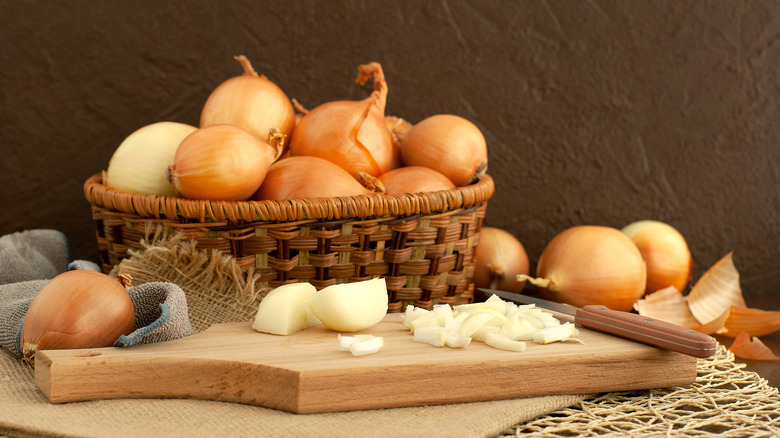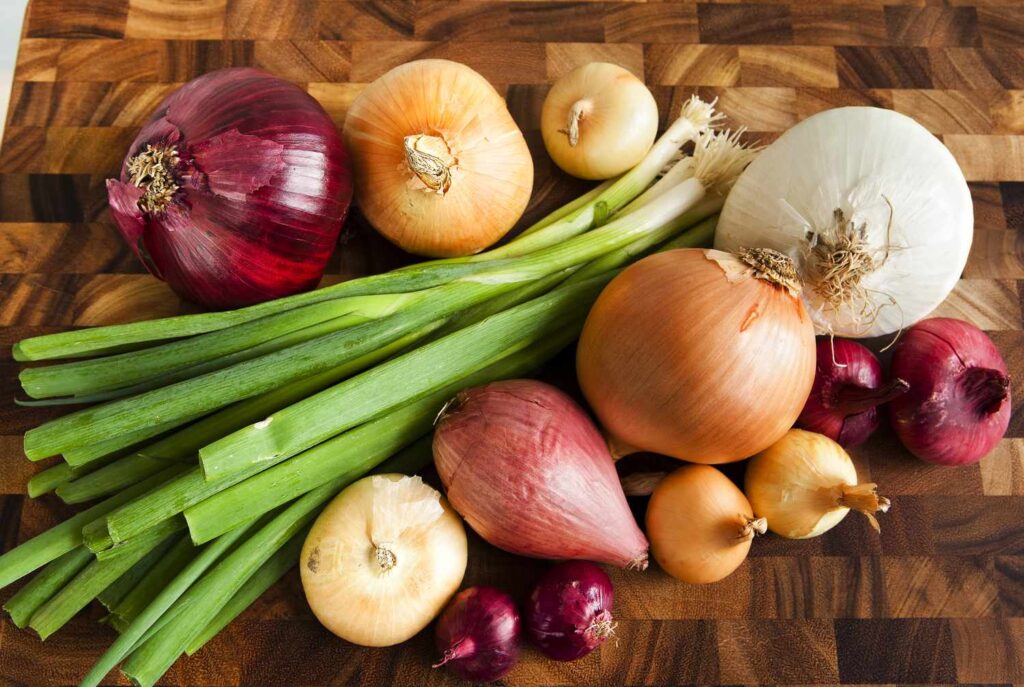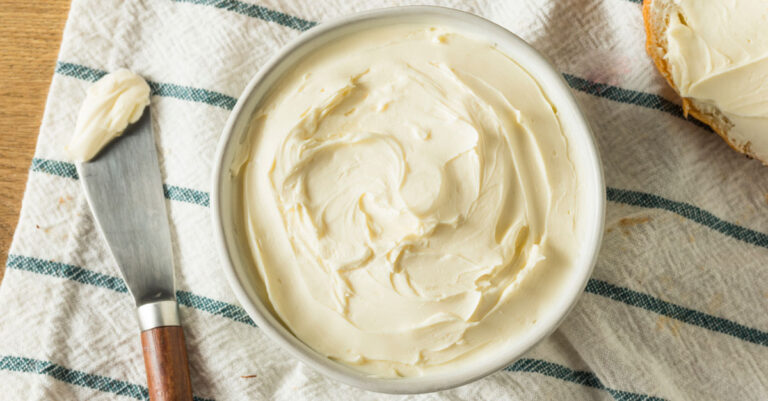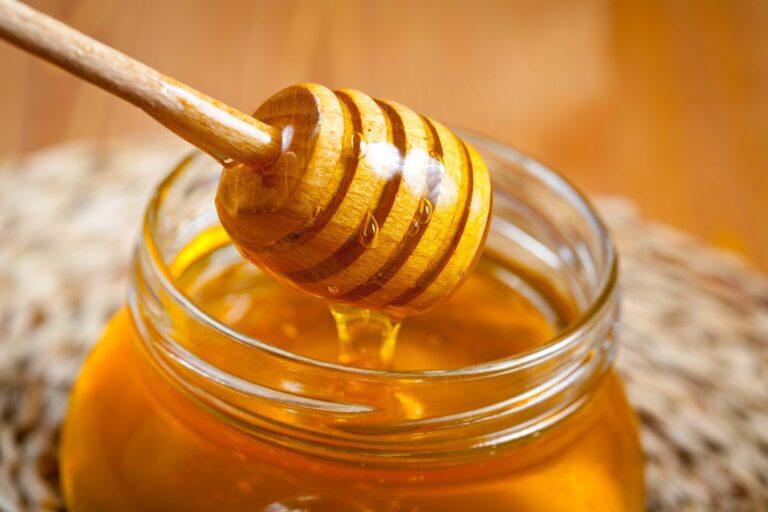Why Do People Hate Onions? The Mystery of Onion Aversion
Do you ever wonder why onions, those versatile little vegetables found in countless recipes, evoke such strong emotions? “Why Do Some People Not Like Onions?” is a question that has intrigued food enthusiasts and curious minds alike. On one hand, they are praised for their ability to add depth and flavor to dishes, while on the other hand, they are met with genuine aversion by some.
However, people don’t like onions for a few simple reasons. They have a strong taste, especially when they’re raw, and this can be too much for some people. Chopping them can also make you cry because they release compounds that irritate your eyes. Also, gives you bad breath that doesn’t go away easily even after brushing your teeth. Some folks find the texture of onions a bit weird, especially if they’re not cooked thoroughly.
So, let’s peel back the layers of this spicy mystery to find out what lies behind the surface of onion aversion.
Exploring Onion Varieties: From Mild Green Onions to Flavorful Pearl Onions

Green Onions: These mild, scallion-like offer a versatile touch to your dishes. Utilize the white bulbs for cooking, ensuring the removal of roots, and don’t forget to garnish your creations with vibrant green tops.
Leeks: With a milder flavor profile and a satisfying crunch, leeks are a fantastic addition to your cooked dishes. Slice and dice the entire leek, including the leaves, for a unique culinary twist.
Chives: Elevate your recipes with the delicate charm of chives. These finely diced herbs make for exquisite garnishes and enhance the flavors of cold salads and various dishes.
Purple Onions: Resembling their white or yellow counterparts but adorned in a delightful shade of purple, these onions pack a flavorful punch. Serve them raw in salads for a bold and colorful touch or, for the picky eaters, consider slow-cooking to mellow the intensity. They are also a must-have for guacamole enthusiasts and pickle aficionados.
Pearl Onions: Sometimes referred to as baby or button onions, these diminutive bulbs are culinary gems. Roast them whole for a delectable addition to sheet pan meals, toss them into your Instant Pot or slow cooker creations, or give them a quick chop to enhance various recipes. If you’re feeling adventurous, don’t hesitate to try your hand at pickling this unique variety.
Reason Why People Hate Onion So Much?
The Color: in particular, Red ones can be quite visually unappealing when they turn dark in meals after being cooked or fried. This transformation can indeed detract from the overall appeal and perceived tastiness of a dish. Imagine biting into a plate of pasta only to discover unappetizing, blackened strings of them– not exactly a pleasant experience.
Tears: The age-old association of them with teary eyes is no exaggeration. Further, they release sulfurous compounds and enzymes when cut, which can irritate the eyes and lead to tearing. While methods like holding a slice of bread or wearing goggles have been suggested to mitigate this, they can feel like a hassle to some. When in a rush to prepare a meal, taking the time to refrigerate an onion before slicing may also be perceived as time-wasting.
Bad Breath: The sulfur compounds present in them can indeed result in unpleasant breath that lingers, even after brushing one’s teeth. This after-effect can be a significant deterrent for those who want to maintain fresh breath after a meal.
Taste and Texture: In addition, they are known for their pungent flavor, particularly when consumed raw. This strong taste can be overwhelming for individuals with heightened taste sensitivity. Additionally, the texture of them, especially when not thoroughly cooked, may be perceived as somewhat crunchy or slimy, which can be off-putting to those who prefer smoother and softer foods.
Digestive Sensitivities: They contain compounds that can be hard to digest for some individuals, leading to digestive discomfort, gas, and other gastrointestinal issues. This can contribute to a dislike of onions for those who experience such sensitivities.
Cultural and Culinary Background: Culinary preferences are often shaped by cultural influences. Some use them as staple ingredients in a wide range of dishes, while others incorporate them more sparingly or not at all. This background can influence whether individuals develop a taste for onions.
Negative Childhood Experiences: Bad experiences with them as a child can lead to a lifelong dislike. Allergies or sensitivities to can also make people dislike them even more.
Psychological Factors: Personal food preferences are often influenced by psychological factors. If someone has developed a psychological aversion to them for any reason, it can be challenging to overcome.
Culinary Preparation: The way onions are prepared and cooked can significantly affect one’s perception of them. Some people may dislike raw onions but enjoy them when they are cooked, while others may have the opposite preference.
The Health Benefits of Incorporating Onions into Your Diet
Nutrient-Rich: Onions are a good source of essential nutrients, including vitamins C and B6, dietary fiber, and folic acid. They also contain minerals like potassium and manganese.
Antioxidant Properties: They feature antioxidants including quercetin and anthocyanins, which help protect cells from free radical damage. Antioxidants have been linked to a lower risk of chronic illnesses.
Anti-Inflammatory: Quercetin, a prominent antioxidant has anti-inflammatory properties and may help reduce inflammation in the body. This can be beneficial for conditions where inflammation plays a role.
Heart Health: Onions may contribute to heart health by helping to lower blood pressure and reduce the risk of heart disease. Their sulfur compounds can improve blood vessel function and reduce the risk of blood clots.
Digestive Health: They are a good source of dietary fiber, which supports digestive health by promoting regular bowel movements and preventing constipation.
Cancer Prevention: Some studies suggest that regular consumption of onions may be associated with a reduced risk of certain types of cancer, such as colorectal and gastric cancers, due to their antioxidant and anti-inflammatory properties.
Immune Support: The vitamin C content in onions helps boost the immune system, promoting the body’s ability to fight off illnesses and infections.
Bone Health: They contain a compound called GPCS (gamma-L-glutamyl-L-propenyl-L-cysteine sulfoxide), which may help improve bone health and reduce the risk of osteoporosis.
Diabetes Management: Moreover, they may help regulate blood sugar levels due to their low glycemic index and the presence of fiber, which slows down the absorption of sugar in the bloodstream.
Skin Health: The antioxidants in them can contribute to healthier skin by protecting it from damage caused by UV rays and pollution. They may also help reduce signs of aging.
Respiratory Health: They have been used in traditional remedies for respiratory conditions such as coughs and colds. Their anti-inflammatory properties may help alleviate some respiratory symptoms.
Potential Drawbacks of Consuming Onions
Onions comprise fructans, a type of carbohydrate that might be difficult for some people to digest. These chemicals can ferment in the digestive tract, causing gas, bloating, and abdominal pain. Individuals suffering from irritable bowel syndrome (IBS) or other gastrointestinal diseases may be especially vulnerable to these effects.
Heartburn and Acid Reflux: They are known to relax the lower esophageal sphincter, which can lead to the backflow of stomach acid, resulting in heartburn and acid reflux in some individuals. If you are prone to these conditions, consuming them, especially raw ones, may exacerbate symptoms.
Allergies: While relatively rare, some people may have an allergy, which can cause various allergic reactions, including skin rashes, itching, swelling, or even more severe symptoms like difficulty breathing or anaphylaxis. It’s important to be cautious if you suspect an allergy and seek medical advice.
FODMAP Sensitivity: Onions belong to a group of foods high in FODMAPs (fermentable oligosaccharides, disaccharides, monosaccharides, and polyols). These compounds can trigger symptoms in individuals with irritable bowel syndrome (IBS) or other digestive disorders. Cutting out or limiting high-FODMAP foods like them may help alleviate symptoms.
Breath and Body Odor:They include sulfur compounds that can contribute to bad breath and body odor. Even after brushing your teeth or using mouthwash, the aroma of them can linger, making it a less favorable choice for those who prioritize fresh breath.
Sensitivity to Strong Flavors: The pungent and robust flavor of onions can be overpowering for some individuals, masking the subtle flavors of other ingredients in a dish. This can be a drawback for those who prefer milder tastes.
Potential for Foodborne Illness: They are often consumed raw or lightly cooked, making them susceptible to contamination by harmful bacteria. To reduce the risk of foodborne illness, it’s essential to handle, store, and wash them properly.
Skin Irritation: Some individuals may experience skin irritation when handling raw ones. The pungent juices can cause redness, itching, or even contact dermatitis in sensitive individuals.
How can I cultivate a taste for onions and enjoy them more in my meals?

If you’re looking to cultivate an appreciation for onions or incorporate them more seamlessly into your diet, consider these helpful tips and tricks.
To begin with, you might want to opt for milder varieties, such as sweet onions like Vidalia or Walla Walla, shallots, or green onions (scallions). These selections offer a gentler and less pungent flavor, especially when compared to their more robust, raw counterparts.
Additionally, cooking them can work wonders in mellowing their intensity. Techniques like sautéing, caramelizing, or roasting can coax out their natural sweetness and temper their pungency.
As you acquaint your taste buds with them, it’s advisable to start slowly and gradually work them into your preferred dishes, initially using modest amounts and gradually increasing as your palate adjusts. If it is the strong flavor is a concern, consider blending them with complementary ingredients you enjoy, such as garlic, herbs, or spices.
Then, thinly slicing onions can also make their presence in a dish less dominant while adding them to sandwiches or utilizing them in pureed form as a base for soups and sauces can introduce their flavor without overwhelming the overall taste.
Furthermore, you can explore diverse cooking techniques, pair onions with bold flavors, and balance their taste with sweetness.
Finally , the key lies in patience and persistence, as taste preferences often evolve over time. The more you experiment and incorporate them into your diet in various ways, the more likely you are to develop a genuine fondness for them.
FAQs
Why do people not like onions?
People may dislike onions due to their strong taste, potential digestive discomfort, texture, and cultural influences.
What percent of people hate onions?
The percentage of people who dislike onions can vary widely and is influenced by personal taste, making it challenging to provide an exact figure.
Why don’t kids like onions?
Children often have more sensitive taste buds, making them more averse to strong or pungent flavors like those found in onions.
What do you call someone who doesn’t like onions?
They might be referred to as having an aversion to onions also alliumphobic.
What cultures don’t eat onions?
While most cultures use onions in their cuisine, some individuals or specific dishes may avoid onions, but it’s not associated with entire cultures.
What cultures don’t use onions?
Onions are widely used in global cuisines, and there isn’t a culture known for completely avoiding onions in their cooking. However, the extent of onion use may vary between cultures and individual dishes.
Why do people like onions?
People like onions for their versatile flavor profile, adding depth and complexity to various dishes, and their ability to enhance the taste of savory foods through caramelization and cooking processes.
Final Words
Some people dislike onions due to their strong taste, potential digestive issues, texture, and cultural influences. However, personal taste varies widely, and what one person dislikes, another enjoys. The world of food is diverse, offering a wide range of ingredients and flavors to explore. Whether you love or avoid them, understanding these different preferences can lead to a richer culinary experience.
In addition, they are known for their pungent aroma and the tendency to make people cry when chopped. Despite this, they play a vital role in many cuisines worldwide. With the right cooking techniques, They can add wonderful flavor to dishes, making them a fascinating ingredient to discover, whether you’re a fan or not.







